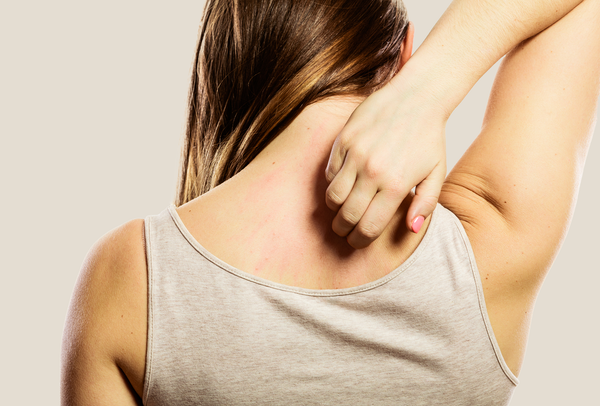A human nose has around 400 types of scent receptors. Despite the myth that humans have a bad sense of smell relative to other animals, a 2014 study reported in the journal Science concluded that the human nose can distinguish at least 1 trillion different odors. So it's no surprise that smell influences how we interact with the world and the emotions we associate with people, things, and experiences.
In beauty products, fragrance is a key factor in people's attraction to a product. It becomes a part of how they present themselves to the world. But for many people, fragrance has the opposite effect. For people who are sensitive to it, fragrance can be intensely frustrating or harmful. It can also cause a variety of potential issues for the skin.
“Fragrances can be complex and are often composed of dozens or even hundreds of ingredients,” explains dermatologist and SEEN co-founder Dr. Iris Rubin. In fact, fragrance manufacturers consider the ingredients of their fragrances to be trade secrets and are reluctant to share the list of ingredients even to the companies whose products the fragrances are a part of.
The impact of many of those mystery ingredients on the skin can be multifold. “Fragrance - even natural fragrances and essential oils - can cause contact dermatitis, an irritation or skin allergy that shows up on the skin usually as redness, flaking, or itching,” says Rubin. And, since your scalp is itself another stretch of skin, fragrance may have the same impact there, causing redness, flaking and itching. It's also important to note that what’s on your hair is on your skin because hair product residue transfers to the skin in the shower or from a towel/pillowcase or hair touching the skin. So a sensitivity to fragrance could show up as a rash on the face or body, in addition to the scalp.
While not everyone with sensitive skin is sensitive or allergic to fragrance, the American Academy of Dermatology has reported an increasing sensitization to fragrance worldwide. According to recent studies, up to 4.5%* of adults may have a skin allergy to fragrance, and 34.7%** of US adults report fragrance sensitivity to fragranced consumer products (e.g. air fresheners, candles, detergents, soaps). Rubin cautions that "if you are sensitive to fragrance and are dealing with an inflammatory skin condition (acne, rosacea, eczema), adding a potential irritant or allergen in the form of a fragrance ingredient can potentially make the problem worse."
With all this in mind, and based on the many requests for versions of its products without fragrance, SEEN decided to launch fragrance free versions. The first to launch is fragrance free SEEN Shampoo and Conditioner, followed by fragrance free SEEN Blow-Out Creme in the Spring. For the most sensitized among us, these will become an indispensable addition to the shower shelf since fragrance free formulas can be life changing. "It’s incredibly hard to find luxury hair care that is fragrance free," says Rubin. It is also worth noting that some products that say “unscented” or “fragrance free” may have masking fragrances. Fragrance free SEEN has no masking fragrances.
SEEN believes you shouldn't have to compromise between beautiful hair and healthy skin. Whether you love fragrance or struggle with it, you now have different SEEN options that still deliver the same fantastic hair AND skin experience.

*Dermatitis: Jan/Feb 2020, Vol 31, Issue 1, p 13-35; **Air Qual Atmos Health 12, 891–897 (2019)




